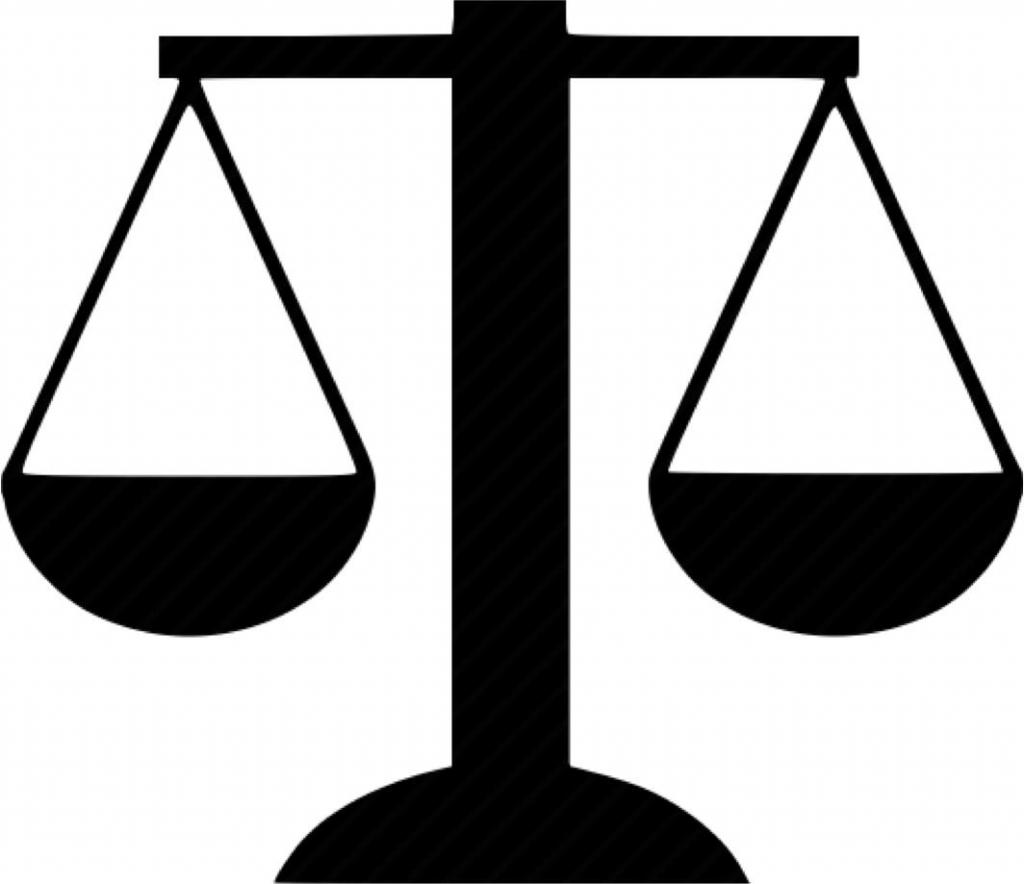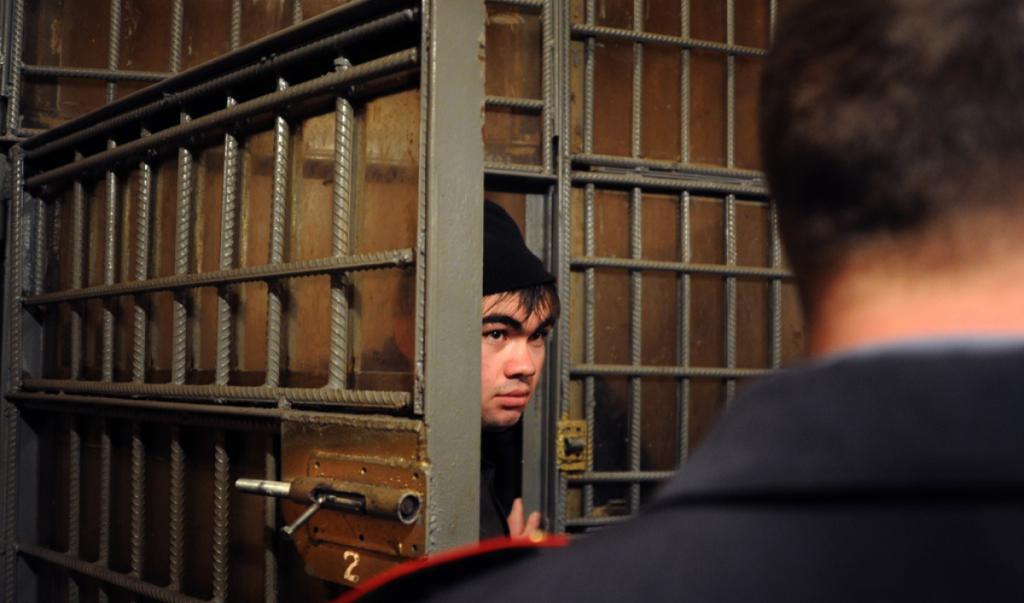Current legislation requires a special approach to some offenders. It is a question of imposing criminal punishment in the presence of extenuating circumstances. To understand the features and problems of this issue, you must first understand in detail the specifics of attributing a certain nuance of the event to the circumstances on the basis of which the punishment can be assigned a milder one.

General view
In the Criminal Code of the Russian Federation extenuating circumstances are considered in Article No. 64. It is this document that plays the most significant role. The foundation of application is always the exclusivity of the case. If during the trial such circumstances were revealed by which a milder form of punishment can be imposed, the behavior of the offender must first be analyzed. A milder form of legal measure can be applied to it only in the case when a person actively helps a law enforcement agency to solve a conflict case. This is primarily true for a group offense, that is, several citizens became participants in it.
The extenuating circumstances listed in the Criminal Code of the Russian Federation are not only the mentioned article. Its provisions are important, but not exhaustive. The institution conducting the case may pay attention to various facts that affect the outcome of the consideration. In some cases, only one circumstance becomes exceptional, but in another case, the court in this capacity may consider several as a whole at once. The court focuses on the specifics of a particular case. The law established that internal conviction in the described situation is a decisive factor.
Recognize and apply
Analyzing the peculiarities of sentencing in the presence of extenuating circumstances, special attention should be paid to the situation when the court assesses the behavior of the defendant as cooperation, and actively helps the investigation to clarify the justice of what happened. If such behavior is observed, it is allowed to make a decision to classify the situation as exceptional, on the basis of which a milder option of punishment for the offense is chosen. The law provides for three ways.

The simplest and most frequently used one is the application of a form of punishment to a criminal, which is slightly less than the minimum threshold declared by law for a proven crime. The technique can be used when it comes to the main form. There is a connection with the established problems of sentencing in the presence of extenuating circumstances - the applicability of the described norm is characteristic only of a situation where legal regulations govern how minimally weak the punishment for what is committed and what is the upper limit.
And if more?
In spite of the fact that mitigating circumstances recognize cooperation and actions that allow solving the crime, in the absence of clearly defined boundaries of the law, the procedure for reducing the measure of restraint can be problematic. As can be seen from legal practice, legal instances are faced with this complexity not so rarely.
If the case is under such an article, when the sentence in the presence of extenuating circumstances is associated with the described problem, the court has the right to choose a preventive measure, focusing on the Criminal Code in the general paragraphs. Such standards apply to certain specific forms of offenses. The court selects the best article, reveals the lowest possible level of punishment. It is this rule that applies to the criminal.
There are exceptions.
Article 61 of the Criminal Code of the Russian Federation is not applicable if a crime in respect of which the defendant's guilt was proved is punishable by life imprisonment. A similar situation arises if the punishment declared by law is the death penalty. At the same time, it is allowed to appoint a measure that is weaker than the described special part of the Criminal Code.

Article 61 of the Criminal Code of the Russian Federation declares the possibility of refusing additional punishment, which is recognized as mandatory if guided by the text of the Criminal Code, when extenuating circumstances apply to a particular defendant.
I confess and repent
A special case considered by law with particular care is confession followed by the remorse of the offender. If a person is aware of what he has done and regrets, feels guilty both for the act and for its consequences, he can count on some leniency from the court. The possibility of such an approach is regulated by the Code of Criminal Procedure in an article published under number 28, and in the Criminal Code under number 75. It follows from the criminal law that a criminal who breaks the law for the first time can avoid responsibility at all. This applies solely to situations where misconduct is assessed as low in severity or moderate.
Escape from responsibility will help surrender. This event should be voluntary, significantly assisting the investigation in the disclosure of the unlawful act. As a mitigating circumstance, allowing to abolish the punishment in principle, the described act acts if the offender compensates for the harm caused to them, damage. Continued repentance is believed to be an obvious indicator of personal security for the community in the future. This reasoning was basic for legislators in formulating the described standard.
Different sides of the issue
Turning to the indicated option, it is worth paying attention that there are two options for assessing the actions of the criminal: objective, subjective. The first involves an analysis of his actions, the second - an assessment of the threat to society. The current norms of the Criminal Code do not contain clear indications of the need to take into account the motivational component of the behavior of the criminal who decided to go this way towards the investigation. Some jurists call for amendments to the Criminal Code so that the legislation not only contains a list of mitigating circumstances, but is an effective tool for analyzing the behavior of offenders. Having accumulated a sufficient amount of information, it would have been possible to effectively predict how citizens who have committed an unlawful act will behave.

So far, the proposals have only been formulated, but no real initiatives are known related to the soon completion of the Criminal Code. Under current conditions, the imposition of punishment in the presence of extenuating circumstances is solely the responsibility of the persons who are under the obligation to analyze a specific illegal act. If the judge’s internal conviction is such that it is possible to assess a person as sincerely repenting, it is allowed to use lightweight penalties for him. If the judge makes such a decision, this aspect must be mentioned when making the final decision. All interested parties, as well as the public (in the case of an open meeting), have the right to know which grounds were evaluated as mitigating when considered.
I agree and ready to cooperate
It is relatively simple to impose a sentence in the presence of extenuating circumstances if the case investigation procedure involved the drafting of an agreement between the offender and the representative of the state institution regulating cooperation in the framework of this case. In order to properly arrange for assistance, you first need to file an application. Its form, filling rules, consideration features are regulated by the CPC, namely article number 40. The document contains the review rules and possible options for responding to the appeal. Here are the conditions that will control the process of formulating an opinion on the case, the sentence to the guilty party that entered into the agreement.
The agreement concluded before the trial begins makes it possible to impose a sentence in the presence of extenuating circumstances when both the defense and the prosecutor signed the official paper. The documentation clearly declares the possible conditions that determine the establishment of the boundaries of responsibility of a citizen accused of an offense. The main idea of such interaction is to interest the person who violated the laws to cooperate with the law enforcement agency, the judicial structure, thereby simplifying the work of investigators and facilitating their own fate.
Rules and features
An agreement made prior to the trial will be, for example, a mitigating circumstance in a murder. This fact is considered as an occasion to reduce liability in a number of other offenses punishable by the norms of the Criminal Code. But non-criminal cases do not contain such concessions. Legislative acts clearly indicate that any guilty citizen can sign an agreement, it does not matter what his fault is and what kind of offense has occurred. Submission of the application reduces the time interval between the search for the suspect and the identification of the perpetrator of the offense. Only here the consequences of such an application in criminal and other cases are somewhat different.
If such an agreement was concluded (for example, as a mitigating circumstance in a murder), then the investigation, conducted before the case is brought to court, is carried out with a number of specific features. It must be divided into several paperwork, since the main idea of cooperation is the definition of all accomplices. The task of the law enforcement agency is to quickly neutralize the danger that other members of the group associated with a particular case pose to the public.

Neatly and responsibly
The conclusion of the agreement puts the person who committed the offense, not only in a favorable relationship (with respect to the law), but also in jeopardy - in particular, there is the possibility of revenge and other types of aggression. This obliges law enforcement agencies to be especially careful in preserving any information related to persons collaborating with the investigation. It is unacceptable that such data fall into the hands of criminal elements, persons associated with illegal activity. In the area of responsibility of law enforcement agencies - minimizing the risk for the person who went to the agreement.
If the offender made a petition, in the field of interests of both himself and the law enforcement authority - compliance with the conditions to which the parties subscribed. Clearly adhering to everything declared, a person can count on the application of a milder punishment to him by the court than it should in a particular case. The grounds associated with the agreement are recognized by the court only when it is possible to prove the assistance of the offender to law enforcement agencies.
Goals and process
One of the important reasons for mitigating the chosen preventive measure is the unfinished nature of the act of the citizen who violated the laws.For such offenses, two consecutive stages are distinguished, which differ from each other in severity of what happened to the parties. Punishment involves a preliminary analysis of what already happened, the circumstances surrounding the event, as well as the reasons why the person did not complete the plan. The norms of the Criminal Code are applicable only to those persons who were preparing to commit a grave, especially grave offense.
The most severe punishment will be in the event of an attempt. First, the investigation determines all the circumstances characteristic of preparing for the situation, factors on the basis of which responsibility becomes harder or the punishment can be mitigated. In the framework of the trial, all circumstances that prevent the criminal from completing the plan are revealed. Assessing the event comprehensively, given the severity, choose the punishment. As an additional punishment, you can not choose a period, size comparable with the main form.
Ways and Occasions
Often, the minority of the perpetrator acts as a basis for facilitating preventive measures. Current legislation specifically stipulates various options for applying criminal norms to people of different ages. Some apply to those who are still just under 14, others are intended for those who have practically crossed the border of adulthood. In addition, laws require taking into account peculiarities - if an offense is committed by a person for the first time and is provoked by chance, by coincidence, you can mitigate the punishment. The reason for such a court decision may be pregnancy.

In general, it is children themselves - this is the reason most often mentioned as a way to facilitate a preventive measure. For example, the presence of young children in the offender becomes just such an incentive for the court. The condition applies equally to offenders of both sexes.
What else are they looking at?
As a mitigating circumstance, evidence of coercion (by force, influence on the psyche), or the dependence of the offender (financial, career or other) may be used. Sometimes criminal acts are explained by the difficult life situation, compassion, immorality of the victim, the abnormality of his behavior, which provoked the criminal to the deed. The court will assess if the perpetrator on the spot tried to provide assistance to the victim, including medical one, as soon as the act took place, and also took the initiative to compensate for the harm caused.
If the offense is provoked by an attempt to defend oneself, it is considered an important mitigating circumstance, which must be taken into account. Attributed to this are attempts to detain the one who committed the crime, as well as situations where a person risked because of his official position, duty, order, was in a situation of no choice, the need to commit an unlawful act.
Integrated and fair
Often in one unlawful act one can see the composition of several articles at once, according to which the offender can be sentenced. In such a situation, the task of the court is not just to note all the provisions of the law, from which it follows the need to punish the person who committed the unlawful act, but also to select an adequate measure. Given the aggregate of crimes, you must first determine the measures of responsibility for each item found, then add them up, taking into account all the features of the situation, and formulate a final decision. The actions of the law enforcement agency are based on several basic principles, of which the most important is the absorption in a strict form of the one that is weaker. This applies to both the complete addition of punishment and the partial application of this wording of the final decision.

If the crime is rated as light, medium, punishment will be imposed on the basis of the logic of absorption, addition in whole or in parts.The main condition: the result cannot be more than half of the longest period for the most serious offense. If the consequences are rated as severe, especially severe, the punishment is added up (parts, in its entirety). In order to mitigate the final version, the court makes an individual decision regarding each act. All this is prescribed in detail at sentencing.
